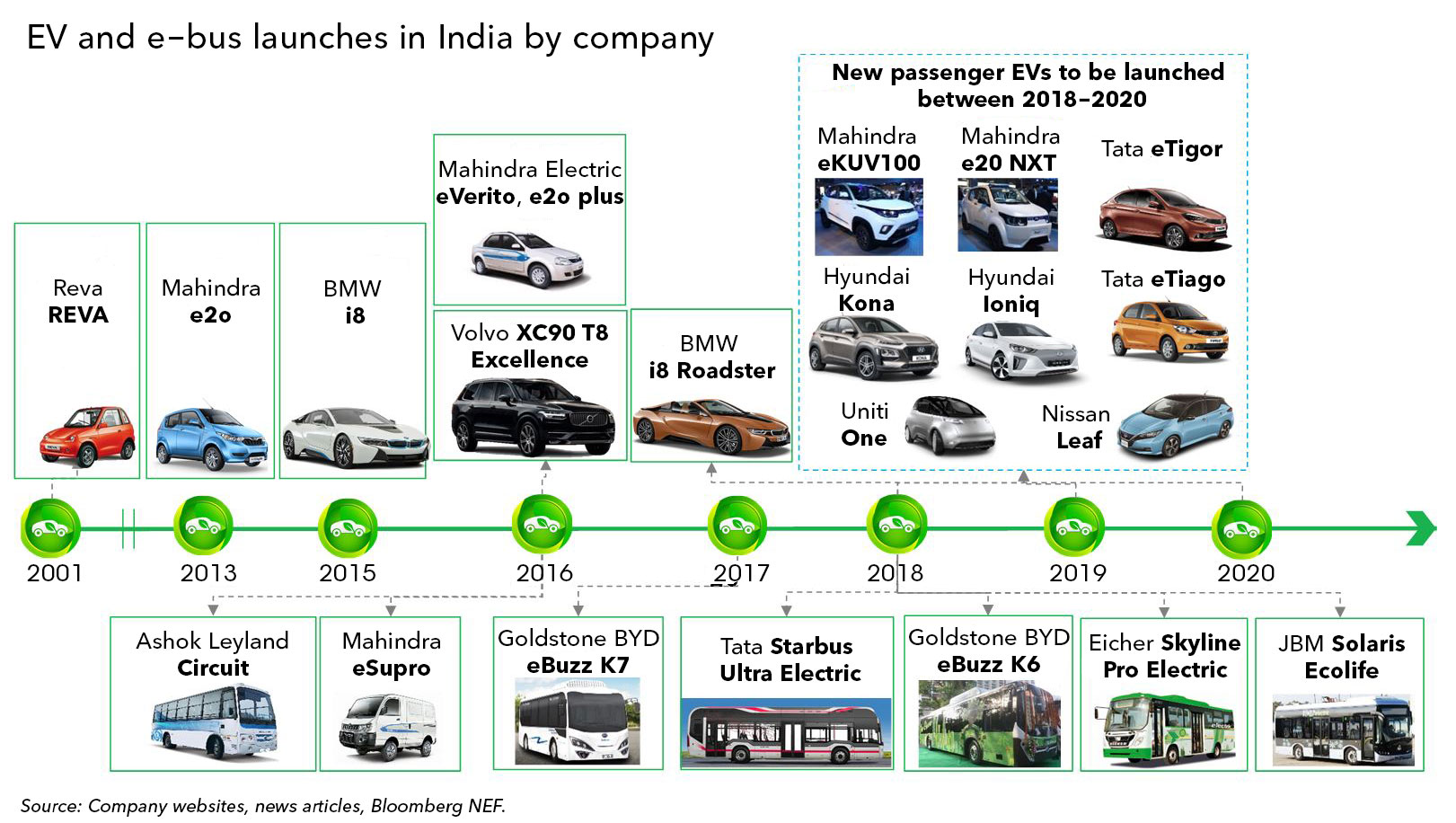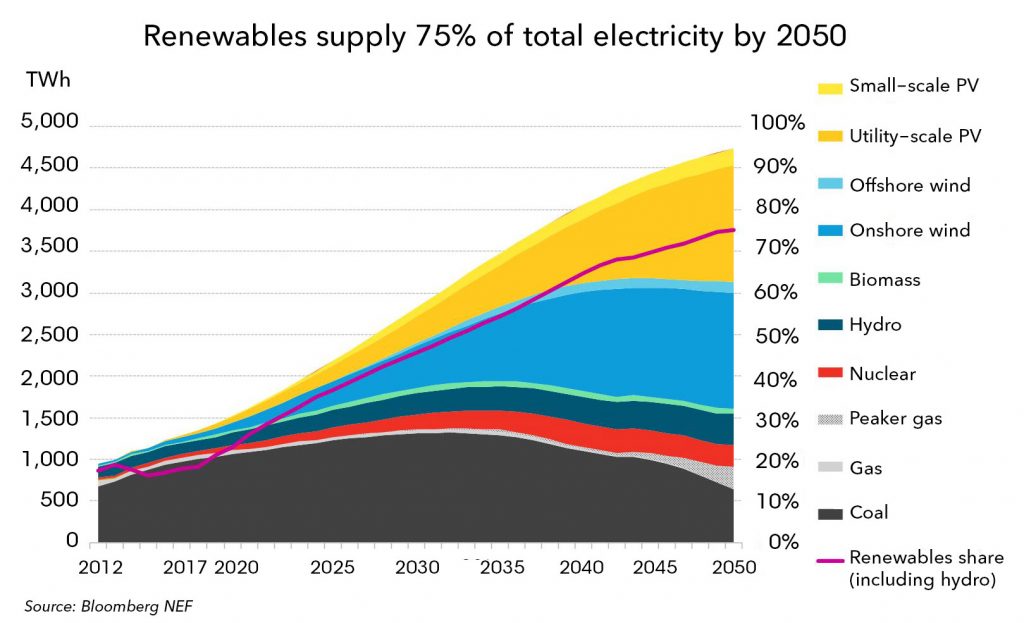A Bloomberg NEF (BNEF) event, in partnership with

BNEF’s first Executive Forum was held in Delhi on July 6, 2018, with a focus on disruption in the energy and transport industries. The event, hosted by Jon Moore, CEO of BNEF, convened thought leaders and CEOs from India’s leading oil, gas, power, auto and technology companies to share their views. Nearly 100 invited decision makers and policy officials attended.
The discourse was driven by BNEF’s forward-looking analysis of power and utilities, commodities, connected & electric mobility, and digital industry.
In July 2019, the event will return as the fifth pillar of BNEF’s global Summit series:
Future of Energy Summit – London – October 1-2, 2018
Future of Energy Summit – Shanghai – November 27-28, 2018
Future of Mobility Summit – San Francisco – February 4-5, 2019
Future of Energy Global Summit – New York City – March 25-26, 2019
Future of Energy Summit – New Delhi – August 2, 2019
* On 7-8 September 2018, BloombergNEF will host Prime Minister of India, Shri Narendra Modi’s MOVE: a global mobility summit to discuss the outlook to 2040 for electric vehicles and mobility services worldwide and in India. Learn more at movebnef.movesummit.in *
Broadcast interview with Amitabh Kant, CEO of NITI Aayog.
NITI Aayog is a government institution for catalysing economic development.
Electric Vehicle Outlook: India discussion
Speakers:
– Anil Srivastava, Director General – DMEO & Adviser, NITI Aayog
– Mahesh Babu, CEO, Mahindra Electric
– Sanjeev Sharma, MD, ABB India
– Sumit Sawhney, MD & CEO, Renault India
- What we heard:
- “Electric three wheelers will be ahead of two wheelers in the electrification of transportation in India.”
- “Cab aggregators like Uber and Ola can be initial drivers of EV adoption in cities.”
- “It will be difficult for new start-ups to set up electric vehicle charging infrastructure. Larger companies and power utilities are better suited for it.”
- “India can play an important role in connected and electric cars but not autonomous vehicles.”
Survey answers from the audience
What is the biggest barrier to EV adoption in India?
1. Vehicle/battery prices – 45.3%
2. EV charging infrastructure – 21.9%
3. Lack of vehicle models – 15.6%
4. Lack of policy support – 14.1%
5. Consumer education – 3.1%
The best way to grow electric vehicle manufacturing in India is:
1. Consumer-end purchase subsidies – 43.1%
2. Promoting domestic battery manufacturing – 23.1%
3. Investment in public charging infrastructure – 13.8%
4. Limits on license plate registration of petrol/diesel vehicles – 12.3%
5. Mandated targets on automakers – 7.7%
In global EV & autonomous vehicle value chain India should focus on:
1. Vehicle manufacturing – 44.4%
2. Software development – 23.8%
3. Battery manufacturing – 19%
4. EV charging hardware manufacturing – 7.9%
5. Autonomous driving technology – 4.8%
New Energy Outlook: India discussion
Speakers:
– Rajiv Mishra, MD, CLP India
– Rahul Munjal, MD, Hero Future Energies
– Pawan Agrawal, President, Yes Bank
- “A larger shift towards renewables is inevitable. Once the [energy] transition starts, the pace of it always takes you by surprise. [on India being able to achieve peak power sector emissions close to 2030].”
- “We have too many problems with land [acquisition] which prevent India from adding 25-30GW solar projects every year.”
- “Power distribution sector remains a bottleneck but a lot of issues can be fixed as power demand picks up.”
Survey answers from the audience
India’s power sector emissions will peak by:
1. 2030 – 52.1%
2. 2040 – 37.5%
3. 2060 or beyond – 6.3%
4. 2050 – 4.2%
The main driver for adoption of power storage systems in India will be:
1. Renewables + storage policies/tenders – 44.7%
2. Grid flexibility requirements – 31.9%
3. Electric vehicles – 17%
4. Distributed generation & consumer adoption – 6.4%
How concerned are you with the rising interest rates and depreciating rupee?
1. Very concerned – 48.9%
2. Somewhat concerned – 38.3%
3. Does not matter – 8.5%
4. Looking forward to it – 4.3%
The event in the press
Bloomberg Quint: India Sees Slower Shift to EVs in Blow to Green Vehicles Goal
Economic Times cover story: Tackling climate change is tough but it’s also a huge business opportunity
ET Energy World: India will get 75 per cent electricity from renewable energy in 2050: BNEF
Financial Express: Electric Vehicles will make up only 7% of new car sales in India in 2030
Fortune – India: Only 10% of Indian vehicles will be EVs: Report
The Hindu – Business Line: India’s EV ride will be driven by govt for next 10 years: Study
Inc42: A Bloomberg NEF Report Shows That Electric Buses Will Surge Faster Than Electric Cars


